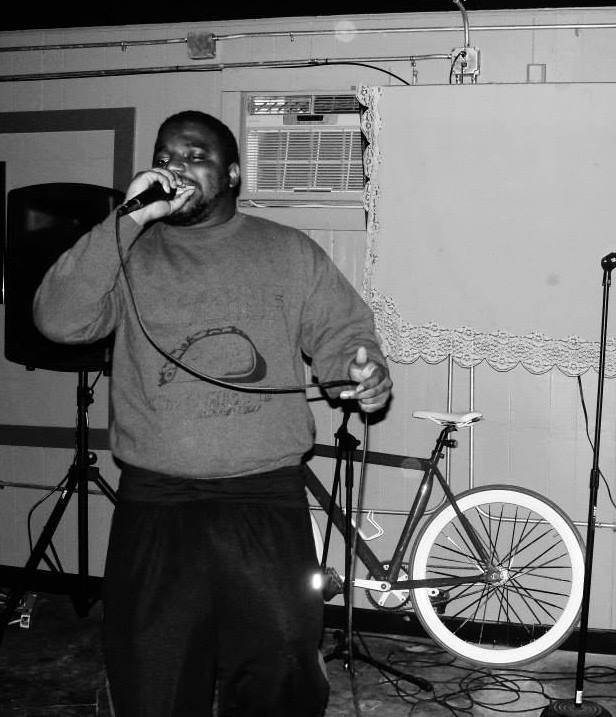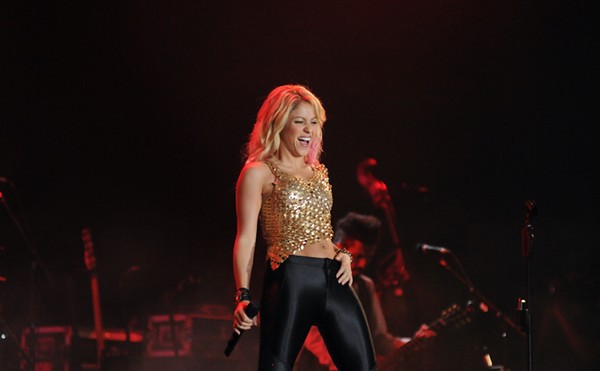The prolific emcee Kevin Prince, better known as Mr. Composition, is a San Anto native with a sharp wit, an open mind, and an uncanny creative drive. This month’s Saytown Beatdown column reflected on the 23-year-old’s upcoming (May 2) fifth release, Graffiti the Mind, and included a tiny bit of a recent interview Prince did with the Current. Here you can check out some extended highlights of that illuminating interview and feast your mind on the wise-beyond-his-years words of one of our own, who’s just too damn talented to keep to ourselves.
On what drew him to rap as an artform:
Since elementary school I was always writing. At the time it was little horror books, because R.L. Stine was the shit. I would use little post-it notes and cardboard and make stories for my classmates. Then from that, in fifth grade, I did my first little rap. It was really corny and kind of like a battle, me against this popular kid at my elementary. So, of course he won because he was popular. But from there, in sixth grade, I saw 8 Mile and started writing more poetry-based rap things and filling up little notebooks. With that, I started getting attention from the little girls so at that point I figured I could just rap to get the girls. And then it all went...
When I was in 8th grade I moved from SA to Maryland for the first time. And I was away from all my friends and family and it was a new everything for me. I had never been out of Texas. So my sister and I were really homesick and my stepdad, who was in the Air Force, was very strict. We never really did anything, just stayed at home on base. I stayed inside all day. I knew people at my school there who were involved in music, so from conversations with my sister I used raps as a way to express my anger and resentment about being in Maryland. It was more putting words together and not having a valid or cohesive point. But from there I learned to use rap as a way to get stuff off my chest.
So after high school, I went through not knowing what to do and a few career options. I started putting more life events in raps. I was with this girl for 4 years and we ended up having a stillborn child together and events like that really triggered a lot of my writing. Then when I started releasing it, people were telling me they could really relate. People want music that speaks to them about real stuff. And that's really when I started thinking of [rapping] as a career or a calling and really focusing myself.
On the story behind Graffiti the Mind:
Well, I first met Ruler Why in 2009 at the Ten Eleven. We talked, and I played him a few tracks, and we decided we could work together. Ever since then we have been doing tracks here and there, but I never really released any of it. So I was like, "hey man, let’s do this Graffiti the Mind project." All of the tracks are something dealing with things that I have experienced or things that I have noticed throughout the world. I tend to draw my inspiration just from the stuff of life in general.
For instance, the recent [Graffiti the Mind] track that I released a video for, called “Expendables,” is basically talking about the idea that if everything people say about the government and their actions is true, then that would make us expendable on the way to whatever they are trying to do. I got a lot of that inspiration in thinking about the Dark Knight shooting and the Boston Marathon bombing.
Everything on Graffiti the Mind is inspired also by art, visual art. I love art. If I’m not performing or anything you can find me at art shows, whether they be body art or an art exhibit or live painting or whatever. I can’t actually physically paint or anything like that though. So I want to do that with my music. If the mind is like a canvas, then what I’m doing is trying to paint all through it
to graffiti the mind. To me graffiti and hip-hop are both misunderstood art forms, so basically I wanted to bring them together as much as possible with this album – with everything from the design to the music. I want to display the same energy and rawness that you can get from a piece of good graffiti in my music.
On the inspiration for “Pandora’s Jukebox” and “Graffiti Lenz,” early Graffiti standout tracks:
[“Pandora’s Jukebox”] is about the concept that hearing something can make you want to do things. Like music, rap music, can inspire you to take certain actions in the real world. I wanted to link the idea of Pandora’s Box with this special way that music can effect and move us. In the song, the character or the speaker is listening to music and comes to the realization that he has become someone different, that he’s been changed into something new and unknown. It’s that moment when you realize that you’re not ‘you’ anymore. “Graffiti Lenz,” which features REL from Chisme, is an introspective production about how not everything that you’re looking at is what it seems. So, basically a “Graffiti Lenz” is kind of like removing the wool from over your eyes and painting things in your own colors. It’s about finding a kind of truth that maybe isn’t what the media or family or peers want you to think.
On the value of albums over mixtapes:
Well, for me, I just think that putting out an album is more personal. Mixtapes are really just for like odds and ends; maybe a little original stuff and some freestyles and a few old tracks or instrumentals. They work really well for some people I guess. But for me, the mixtape should only really be there to introduce people to your skill. That’s why I really stopped after one mixtape and went straight to making albums. I don’t want anyone to compare what I do on a track to what someone else did on it, like that’s not what I am interested in. I want something that people know is mine and all mine. I’m not really a fan of people who just release music rapidly because it coincides with a certain perception of the market or whatever. That way, no one has time to soak everything in and to really get a full picture of who you are and what you’re offering. Plus, I still think there’s value in giving tracks and albums time to grow on you.
On the subject matter of rap songs:
You can make a song for the club, but it doesn’t have to all be about bottle-popping and that mess. There are still those who listen for the lyrics and if you have a story to tell or a message to deliver that will shine through. And that’s what I want to do with my music – be able to tell a story, appeal personally, and still make songs that the majority of people will like
without giving up my integrity.
Don’t miss your chance to see Mr. Composition performing live as he celebrates the release of Graffiti the Mind on April 25 at Fitzgerald’s. And, while you wait for that day to come, peep homie’s illustrious back catalog here: mrcomposition.bandcamp.com.
















